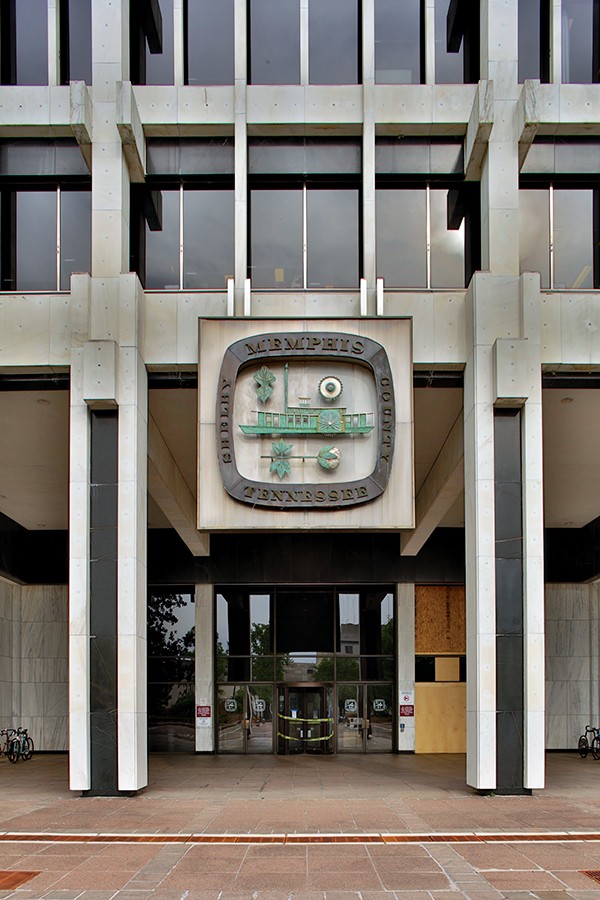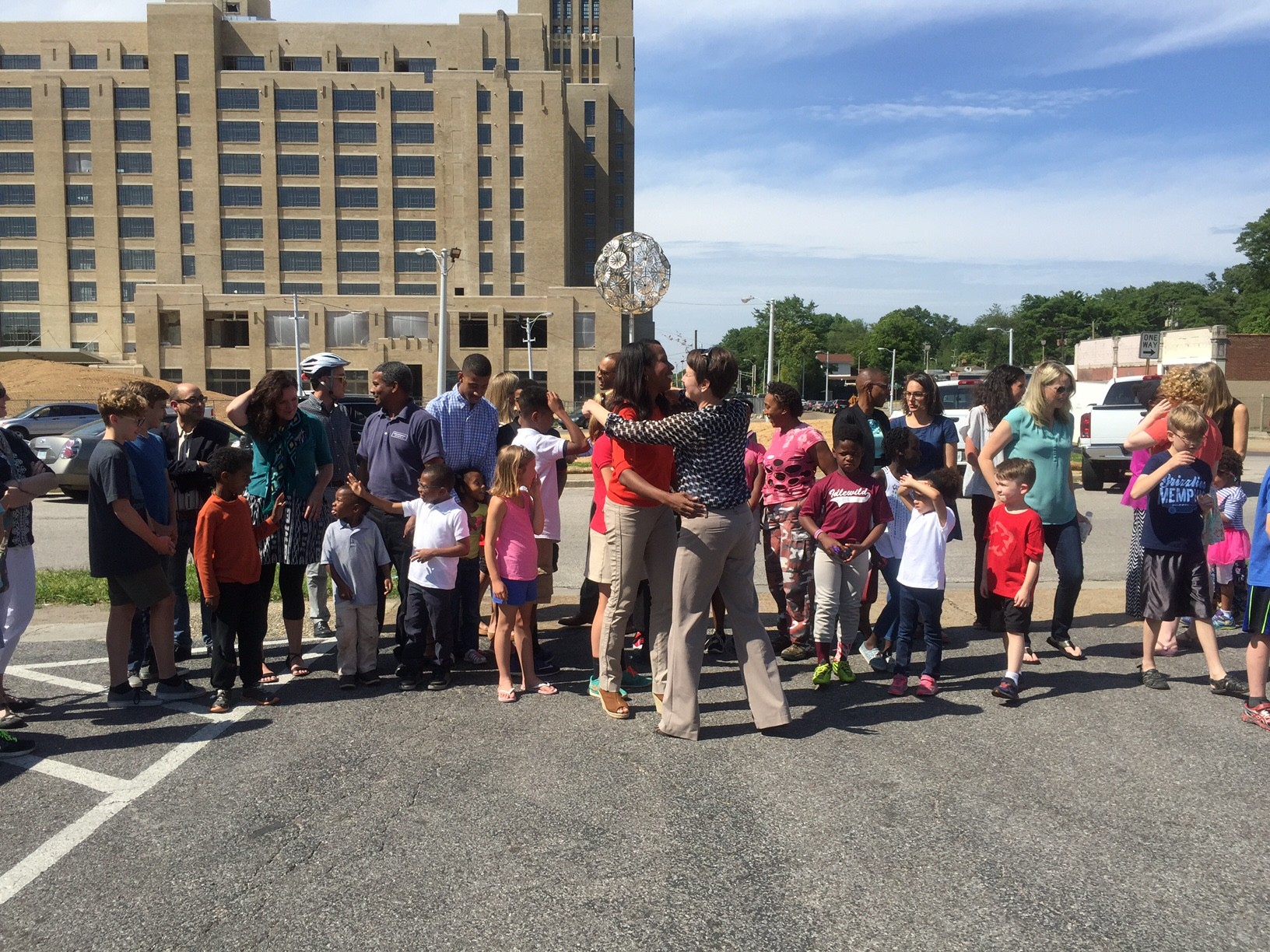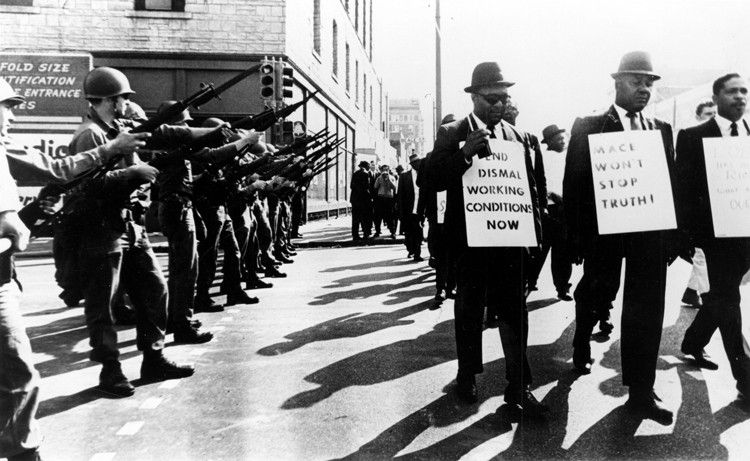Do Memphis City Council members really hear the voice of ordinary citizens?
Lots of people are saying no.
To be fair, during public comments from the well-worn podium facing the council’s desk, council members are exposed to hours of personal stories, explanations of data, pleading (and even some outright begging), half-formed thoughts, cuss words, name-calling, and, yes, lectures about the danger of fluoride in the water supply.
And often — and even after hearing testimony from dozens of people — the council does the exact opposite of what most of the speakers hoped for. Think of the employee-benefit cuts of 2014 or, more recently, the issues surrounding the Memphis Zoo/Greensward or the Parkside at Shelby Farms development.
Frustration and anger from citizens who feel disenfranchised sometimes get thrown at council members after meetings, but more often, these days, that anger goes onto Facebook and Twitter.
Many council members say they do listen to the speakers, and that’s the reason they allow citizens to speak in the first place. They want to hear their ideas and want them to feel part of the decision-making process.
But — at the end of the proverbial day — we have a representative-style government. Council members ran for office, won, and, thus, get to make the final call, even if it goes against the wishes of passionate citizens (or, as some would say, the “fringe element”). To quote city council attorney, Allan Wade: “That’s the way it works.”

Memphis City Council members maintain that they want the practice of public comment to continue, albeit in a modified form, but how much do they really listen? Is there too much to wade through, or are they patronizing the so-called “fringe element”? Maybe there’s just too much fluoride in the water.
New Rules for Commenting
Change is on the way for the process of public comments before the city council. It may even be the law of the land as you read this. A resolution on public comment reform was scheduled for a vote on Tuesday, well after our print deadline.
You will still be able to speak directly to council members at meetings, unless this brand-new council makes a major U-turn on the issue, but the anything-goes days are probably gone.
If you’re addressing the council, you “shall not make personal, impertinent, slanderous, or profane remarks to any member of the council, staff, or general public,” according to a draft of the new rules resolution.
If you do, or you disrupt the council meeting with “loud, threatening, personal, or abusive language,” you could be barred from from the rest of the meeting. You might also get asked to leave the council chamber if you’re in the audience and you “engage in disorderly or boisterous conduct, including the utterance of loud, threatening, or abusive language, whistling, stamping of feet.”
Breach these rules once, and the council chairman will give you a warning. Do it again, the chairman can ask you to leave. If you don’t leave, the chairman can ask that the nice (but nonetheless tough and totally armed) sergeant-at-arms see you to the door.
Council member Edmund Ford Jr. convened and led a committee to form the new rules. Questions about some of the council’s processes arose in an orientation session for new council members in January. Public comments became a major topic, along with other questions about council-meeting decorum in general.
New councils will often change their meeting protocols to fit their preference. Wade reminded council members that the meetings were theirs, saying: “If seven of y’all want to do something, we do it, okay? That’s just the way it works.
“Y’all all got elected, and that’s a singular accomplishment that puts you head-and-shoulders above all the people that come talk to us and tell us about fluoride and all the other things we hear about on a regular basis,” Wade said in January. “So, remember, y’all have all been elected to represent y’all’s districts, and that’s an important thing.”
No Right to Speak
You have no right to speak at city council meetings. The Tennessee Open Meetings Act says local governments must announce their meetings and cannot hold votes in secret, but it does not grant the public the right to speak during meetings (unless it’s a zoning issue and the council is acting as a quasi-judicial body, but that’s for another time).
Nashville’s Metro Council, for example, does not allow public comments (unless the council specifically votes to allow comments during the meeting). Memphis Councilwoman Janis Fullilove said in January that she prefers to allow public comments.
“I love hearing people, what they have to say,” Fullilove said. “Sometimes it’s kind of nutty, you know? But these people, they come down here and they take time out of their day and sit here through the whole thing — from A to Z — just to say what they want to say, and they feel like government is listening to them.”
That sentiment was shared in that meeting by new council members Patrice Robinson, Jamita Swearengen, and Martavius Jones. Swearengen said she had heard on the campaign trail and in her first days in office that the council may completely pull citizens’ comment from council meetings and said she “couldn’t sleep at night, knowing that we could take that away from them.”
Swearengen asked for a notification to be given during council meetings to alert the public to what is expected of them.
So, if the new rules resolution is passed, get used to hearing this opener: “As a reminder, these meetings are for the official business of the council and are held in public, not as a meeting with the public,” reads a draft of the resolution. “Citizens may address the council as a matter of legislative grace and not as a matter of right. Any person wishing to speak is expected to reflect a total sense of respect for the office held by those assembled to conduct business.”
This could be a relief or, perhaps, a tough pill to swallow for one Memphis group. The “Free the First” group organized on Facebook in February to block what they had heard was the end of public comments at Memphis council meetings. They showed up at the March 1st council meeting with tape covering their mouths to symbolize how the move to end public comments would silence them.
Earlier that day, council member Ford urged council Chairman Kemp Conrad to announce at the beginning of that meeting that public comments would continue. Conrad did, noting to the Free the First protesters that, “you might have a more pleasant couple of hours if you take the tape off your mouth.
“Memphis is one of the few cities that does allow [public comments],” Conrad said at the time. “But it’s obviously something that we do enjoy and cherish. Although we are going to make some changes to make it better for everybody, it sounds like a big majority of the council wants that to remain.”
Deborah Fisher, the executive director of the Tennessee Coalition for Open Government, said her office has heard a lot of interest lately in public comments at open meetings. In February, the Sumner County Board of Education voted to allow citizens to speak only on items on its agenda. In 2014, a Greene County man was physically removed from a meeting for asking board members to “speak up,” after the chairman had warned against further outbursts.
A bill before the Tennessee General Assembly this year would have mandated public comments during regular meetings of the University of Tennessee board of trustees. The issue was sent out to a summer study.
Fisher said limiting time for public comments is fine, as is asking speakers to be polite, but government bodies should never censor comments, thus, impeding First Amendment rights.
“People can call their representative councilman or councilwoman, but I think being able to go and speak in a meeting is a good thing,” Fisher said. “It does take extra time, but it’s worth it. It’s a way to show that government is for the people and the people should not be shut out of the process.”

Lip Service?
“We are listening,” said council member Joe Brown. “But, basically, it’s every individual councilperson’s opinion on how they vote. But we are listening.”
New council member Frank Colvett said he attends public meetings in his district, including one about the $200 million Parkside at Shelby Farms development. He said he talks with parties involved in civic disagreements, such as neighbors who recently protested new lights for a sports field at Hutchison School. He said he “respectfully disagrees” with any critic who says the council is not listening to them.
“Can you listen to everybody? No,” Colvett said. “Is it possible? No. Is it possible to have good conversations with everybody? No. But, yeah, we do our best.”
When I asked Swearengen what she’d say to critics, her answer was cryptic.
“You have to understand, when you vote favorably towards an issue, that does not necessarily mean that you agree with it,” she said. “Once you see the votes are going to be affirmative, if you want to stay within the game and still be a voice for your constituents, sometimes you have to vote for the affirmative so you can remain a part of the discussion.”
But, she added, “We listen to them, of course.”
But there are many who say councilmen and women are just giving lip service to the idea of listening to constituents.
For example, dozens of citizens showed up to implore the council to postpone a vote on a hurry-up resolution giving a majority stake of the Greensward to the Memphis Zoo until they had a chance to read it. The council — all but Jones — ignored their pleas and voted for the resolution.
At that March meeting, Greensward supporter Bill Stegall told council members he’d be back, and he was. During the council’s May 3rd meeting, in which members were considering another ordinance regarding the Greensward, Stegall took the podium, once more asking to delay the vote.
“I begged you not to pass the last resolution on March 1st, and all it did was create a gigantic mess,” Stegall said. “I’m here asking for exactly the same thing. Will you hear me this time?”
The majority did not, in fact. The ordinance moved on through the legislative process. Conrad noted that the ordinance is, basically, a blank piece of paper that will legally capture the agreements the zoo and the Overton Park Conservancy work out during their mediation talks.
Greensward supporter Stacey Greenberg told council members she understood that position, but that “there’s a lot of mistrust after what happened before [with the March resolution]” and that was why Greensward supporters were showing up at the podium time and again.
Asked if she thinks council members listen to her when she’s at the podium, she pointed to the fact that she hashtags her social media posts from city hall “#shitshow.”
“Joe Brown frequently gets up to take phone calls; Janice Fullilove looks as though she is in another world,” Greenberg said. “I think it is very common for them to look tuned out, to be checking emails or texts, and to get up for various reasons.”
Getting voted down after her personal plea made Greenberg feel “like it doesn’t matter what I say, or what anyone says, because they have decided everything beforehand, behind closed doors.”
That’s how Gregg Elliott said she felt after city council approved the mammoth Parkside at Shelby Farms development in her quiet neighborhood filled with single-family homes. Several residents pleaded with council members to vote against the development, or to at least delay a vote so they could gather more information on the project.
“It was demoralizing, to say the least,” said Elliott, who organized the opposition effort against the development in a Facebook group called “Parkside at Shelby Farms — Say No.”
Elliott said she also felt that the decision had already been made before she approached the podium to speak. Though, she met with council members Worth Morgan, Robinson, Swearengen, Jones, and Conrad before the meeting, and they “definitely listened and asked good questions.”
Back at city hall, a member of Mayor Jim Strickland’s administration said he thought council members listened to constituents. My sense on this story’s viability was waning. Parkside was over. Anger over the Greensward issue had also waned. I wondered if the story had cooled.
Fringe. Element.
Those two words saved this story. I had been at City Hall all day, asking council members if they listen to citizens who take to the podium at meetings. They said they did and had reasons for the way they vote.
Then I trudged into the council committee room, where councilmembers were scheduled to speak for the first time about the new Greensward ordinance that would, in theory, make law whatever comes out of the mediation between the zoo and the conservancy. I didn’t expect them to say much.
Then Councilman Jones asked why passage of the ordinance couldn’t be delayed.
Conrad replied: “If you’re going to make decisions to please the fringe element so they don’t get mad and do bad things, this job is probably not for you.”
That comment brought audible gasps and groans from the Greensward-supporting crowd packed into the small room. “Did he just call me the ‘fringe element’?” one supporter asked another.
Conrad’s comment immediately re-ignited the us-against-them tension in the battle between the Memphis Zoo and Greensward supporters. The “us” being the horde of unheard citizens and the “them” being council members who don’t listen to citizens’ wishes. The “fringe element” was pissed, and the question of whether city council really listens was still relevant.
Conrad tried to clarify at the meeting later that day that what he meant by the “fringe element” were the people responsible for vandalizing zoo and city property and posting threatening messages on social media. He said “I genuinely cherish the positive civic activism and engagement” of those who spoke before the council that night. But the damage was done.
Minutes after Conrad’s “fringe element” comment, Greensward supporters had already claimed the pejorative as their own. The Stop Hurting Overton Park Facebook page was alive again with protest passion. By the weekend, there were already T-shirts reading “Je Suis Fringe Element,” à la the slogan that arose after the 2015 terrorist murders of journalists in the French satirical weekly Charlie Hebdo.
If anything, the “fringe element” episode showed just how garbled political speech can get, as sensitive issues move ahead at Memphis City Hall. Voices of the powerful wash over the frayed nerves of frustrated citizens. That anger and those emotions circulate through social media and are then distilled into two-minute speeches in which people are asked to be polite and respectful of those in power, who they don’t feel are listening. And so it goes.
“Making Public Participation Legal”
That’s the name of a 2013 white paper from a collaboration of groups including the National League of Cities, the International Association for Public Participation, the U.S. federal government, the Public Conversations Project, and others. The paper calls for governmental systems to include far more participation from the public. One of the study’s primary authors, Matt Leighninger of the Deliberative Democracy Consortium, decried public comments, noting that “democracy is dying, three minutes at a time.”
“The vast majority of public meetings are run according to a formula that hasn’t changed in decades,” Leighninger continued. “Officials and other experts present, and citizens are given three-minute increments to either ask questions or make comments,” he wrote. “There is very little interaction or deliberation.”
In a February opinion piece in Governing magazine, Larry Schooler, a community engagement consultant for the city of Austin, Texas, wrote that the consequences of poor public participation can cost cities millions of dollars defending against lawsuits filed by aggrieved policy opponents, or even policing protesters. (Greensward, anyone?) Both Schooler and Leighninger said new technology and even new meeting formats could breathe a fresh life into public decision-making and more effectively bring citizens into the conversation. Schooler pointed to two efforts underway that are changing how citizens interact with city hall.
Portsmouth Listens began in that New Hampshire town in 1999. The program brings citizens together to discuss topics as diverse as bullying in schools to developing long-range land-use plans. Groups of eight to 12 citizens are charged with deliberating on topics just as a policy-making board might do and presenting their conclusions to elected officials.
“This creates a space where participants are willing to modify their views for the overall good,” according to the group’s website.
In Austin, the Conversation Corps gathers citizens at coffee shops, homes, and other spaces for “meaningful civic dialogue focused on public issues.” The meetings are facilitated by government volunteers “who want to hear your voice.” Feedback from the meetings are delivered to decision-makers involved in the issue.
Meanwhile in Memphis
Two minutes on two agenda items. That’s what citizens can expect going forward, when they speak before the Memphis City Council. Being able to speak at all is precious, in a way, since it’s not a right given by state law. And, given councilmembers’ comments, that privilege is not being taken away any time soon.
The question that remains is: Does the council really listen, or are most decisions worked out in advance, making citizen comments nothing more than Kabuki theater?
One thing is certain, as we’ve learned from the protests and social activism sparked by the council’s March decision on the Greensward/zoo issue: Citizens will make their voices heard — one way or another.







 David Evans
David Evans  Greg Cravens
Greg Cravens 
